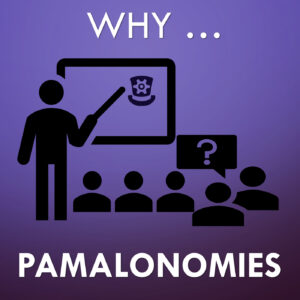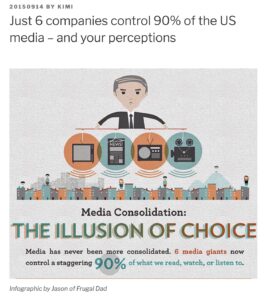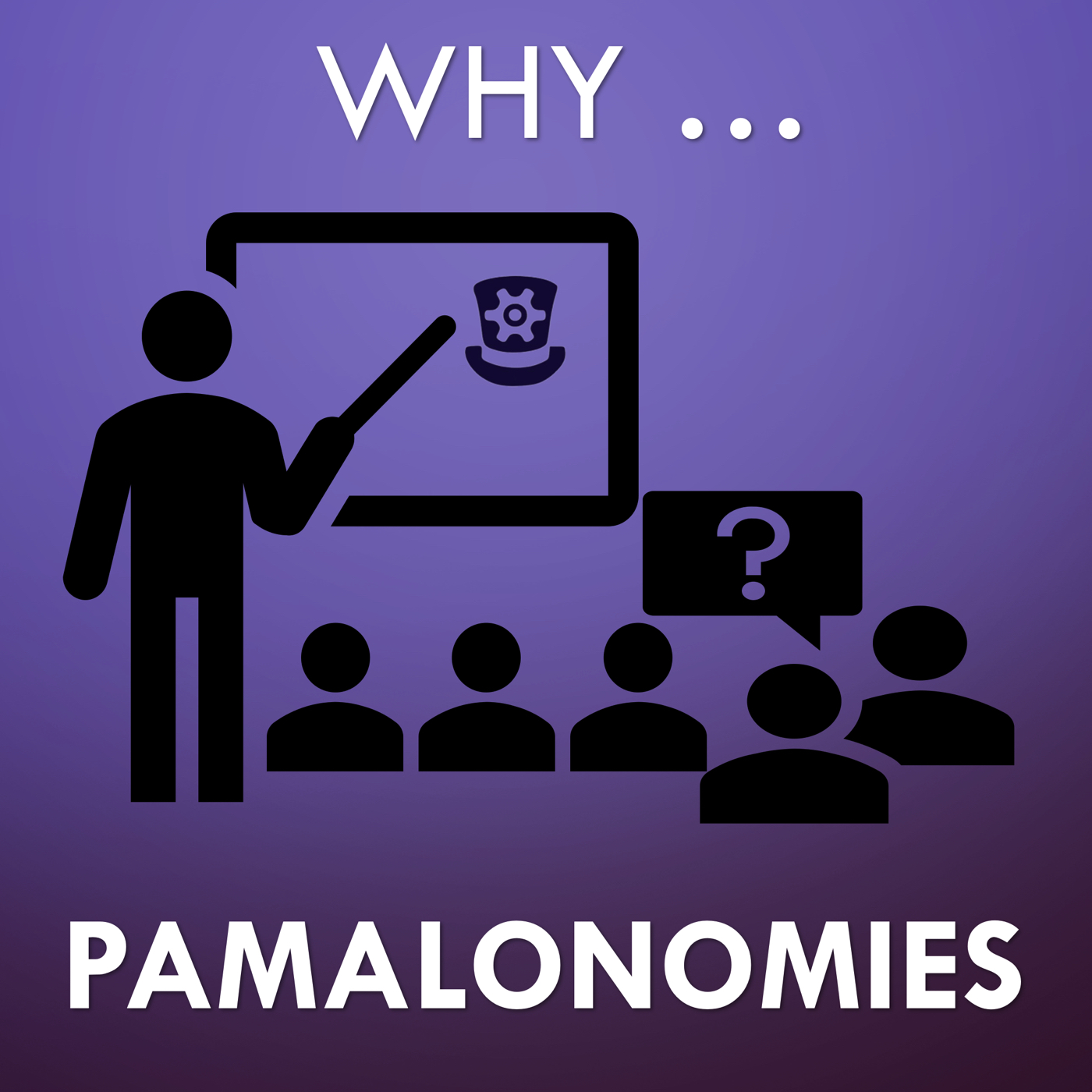We’ve reached the second to last blogcast of Season One and we still haven’t gotten to the heart of pamalonomies. Why is every item on my do-it-before-you-die list a pamalonomy candidate? What is a pamalonomy? Why do I think that your path to awesomeness may just lead you to add to the network of pamalonomies that the Pamalogy Society will support? And why would anyone make it their life’s mission to start a pamalonomy, or to support them, like I have? Today, you’ll find out. Ready?

In our last episode, we talked about your do-it-before-you-die list. We talked about how do-it-before-you-die lists are formed – how they take shape as you learn more about yourself and the world that you live in. A pamalogist, will ask how to maximize awesomeness. To do that, they’ll want to know what maximized awesomeness means. And they’ll want to explore how to optimize their own personal awesomeness in their life, both in their day-to-day living, and in their ultimate calling. A pamalogist will ask how they can do the most possible good in the world before they die. And they may think about what they leave behind for others after they die.
Last episode, I shared some of the personal struggles I had when I was young and trying to figure things out. I gave a little marital advice. And I provided a textbook definition of what a pamalonomy was. A pamalonomy is a high impact, concept stage enterprise that is owned by service personnel and users instead of by third-party shareholders, like venture capitalists or angel investors or passive investors. To understand why this is important, I need to touch some more on my struggle as a visionary. There are reasons I couldn’t realize my dreams, very common reasons. And people not realizing their dreams is a problem. But there is a solution. The Pamalogy Society has that solution – pamalonomies.
So, before you say, “oh look at that long word.” Or, “ewww, who cares about that?” Think about what I’m talking about. I’m talking about people being able to realize their dreams. And it isn’t just that. It’s actually more powerful. It’s about helping the world flourish.
You see, most people who lead, aren’t necessarily visionary leaders. Their idea of success is to work at a career for a company and perhaps advance in their career over time. If they become an entrepreneur at all, this will likely be because they worked their way up a corporate ladder until they hit a glass ceiling. They became an expert in their field and then they realized they could only make more money or advance in their position if they started their own competing company, maybe with a niche market they could focus on.
That’s leadership – no question about it. But when I speak of visionary leadership, I’m talking about something else. I’m talking about visionaries – people who have ideas that can change whole industries. They are people who are passionate about those ideas because they really don’t like the way things are currently being done. They want change.
You don’t have to be an employee in an industry to want change. You could be a consumer. What matters is that you know what you want. And you know what you don’t want.
What you have is a concept.
It may not be money that drives you to want this change. In fact, the less it has to do with how much you might profit, the more likely it is to be driving you bananas. You, my friend, are a visionary – a passionate visionary with a high impact concept. Whether you had a better economic system for the whole world getting your goat, or you just had a better way to make french fries, if your idea was realized, the world would be a better place. And that’s visionary.

Don’t get me wrong. Your idea may well be profitable. But if you are truly passionate about your idea, then you will be willing to give it to someone else who is more capable than you are, just so it can happen. Think about it. You’d be happy to turn it into a nonprofit, if that’s what it took, or let a competitor steal your idea. You may need to pay your bills. You may want to get rich. But it’s not the money that drives you. Passion is about your vision for change.
This is why you really should send me your list. Not everything you want to do before you die is going to be a visionary idea, by any stretch. There may be very few pamalonomy candidates on your list, but one thing I do know. Whatever is on your list, it’s something you really want to see happen.
And if you do have any pamalonomy candidates on your list, I’m serious about seeing how it could fit in strategically with the rest of what the Pamalogy Society will support. Support means raising funds for your ideas. And it means providing volunteer personnel to get your concept launched. If you don’t see why this is important for us to do, then maybe you don’t know what it is like to have an idea you care a lot about and then discover that there is no one to help you turn your idea into reality.
Money and qualified help are both very hard to find. Money is available if we’ve worked hard at a lucrative field and we’ve been careful with our spending. It’s also necessary that we haven’t been the unfortunate victim of poor health, accidents, swindlers or inadequately insured catastrophes. Far more people have money because they inherited it or won lawsuits or lotteries than those who’ve worked hard for it and managed to save it. America is the land of opportunity, we’re told. But the majority of us only have one path to success – working to support someone else’s idea. We work for one of those lucky people that worked hard and didn’t have bad luck, or who just had money all along and was in a position to take risks as an entrepreneur. The majority of us work to support someone else’s passion rather than our own.
That’s why I want to ask you what your passion is. What vision for change do you have? What if there was a way to make it real? What if there was a way to help you own your idea and run with it?
Let’s look at how things currently work. Do you go to Shark Tank? Why? Because you need money to make money so badly that you are willing to go to sharks to get it. The image of a shark is deliberate. These are investors that will take a huge bite out of your profit forever and don’t really care if they leave you bleeding and dying in the process. The idea is that they’ll help you grow your business, taking most of it for themselves. You’ll reason that 30% of something 100 times larger is more than a 3000% gain, well worth it to you. So, if you’ve brought your idea to market on a small scale, and want their money to scale up, you are willing to reduce your profit margin by 70%. You consider that a major victory. And it might just be. You’re willing to let them put their “golden handcuffs” on you. You knew that when you made your pitch.
Now let’s say they invest a million dollars in expanding your company for their 70% equity share. If a bank were to lend you that same million dollars at 20% interest on a five year loan instead, you would pay less than $26,500 per month back to the bank and you would keep 100% ownership. That might work if you had a fast enough return on investment in your business plan. Really, you’d probably need to borrow more just so you had enough cash reserves to get you through Murphy’s Law. Murphy’s Law says that if anything can go wrong it will go wrong, and at the worst possible moment. That means you should probably expect your profits to take twice as long as you think they will. But anyhow, the point is moot, because no bank will loan you that money. Your shark tank investor knows this too. It sounds like a crazy principle, but the investors in the shark tank know that you need to prove to the bank that you don’t really need the money. Ironically, if you need the money, the bank won’t lend it to you – not even at 20% – not even at 40%. Rule number one is that banks only lend money to businesses when those businesses have security in the form of accounts receivable. And a shark tank investor is no different. The only way they won’t demand even more than 70%, if they agree to your deal at all, is if y0u have receivables already too.
Those are your options. And if you have accounts receivable, that means you’ve already made sales. You’ve got contracts. But you don’t have contracts. You don’t have a working business. You’ve got a concept that you are passionate about because you want to change the world. Contracts won’t be a part of your reality while you are in the concept stage. I trust you are no ponzi schemer. There are laws against selling things that don’t exist. Maybe a contractor can sell you a house that doesn’t exist, or an artist can sell artwork to someone who commissions them, but you would have to already be in business for that to happen. You might need to get bonded and insured if you were a contractor. Concept stage means you’ve got an idea you want to turn into a reality. The only reality you have is something you want to change. Therefore, your idea is not going to get funded either by a bank or through Shark Tank.

Don’t think for a minute Shark Tank will invest in an idea. Building something from scratch will mean figuring out some alternative. Who is there besides the angel investors in the shark tank that will fund your idea? Is there government grant money available? Well if you know where to find where all the free money is, then please apply to work in the grant research department at the Pamalogy Society. I want to hear from you!
In reality, most people go to friends and family when they need money to start businesses. I want to discourage you from doing that. There is nothing that can break up friendships and hurt homes more than borrowing money that never gets paid back. There is a reason that banks require security in the form of accounts receivable. Business at the concept stage usually fails, even if you have years of experience in the type of business you are seeking to start.
If you have friends or family and you know there would be little risk in implementing your idea, then feel free to disregard my warning. I wish you God speed. But I have what I think is a much better alternative. It’s called the Pamalogy Society. If you truly have a high impact concept, then share it. It’s really that simple. We will make it our business to change the fact that it takes money to make money. All we need is a good business plan. We’ll make it our business to provide funding and talent to your enterprise. The volunteers will provide an agreed upon number of pro bono hours, and the Pamalogy Society will offer a schedule of funds based on performance criteria. Each pamalonomy will be unique. Your business plan will be carefully reviewed by our board.
The process will work like this. You will submit your idea. It will be reviewed. If it is a strategic fit for the whole Pamalogy Society pamalonomy porfolio, then we’ll consider when it would best be implemented and by whom. And once we have a concrete idea of how we would execute the plan, we will take your concept to our supporters and grantors and ask them for money for the project. These are donations that you will not have to pay back. The Pamalogy Society’s donors will be motivated to contribute to your project because they will recognize the value of your idea. Like you, they want to change the world. Unlike you, they have funds available to make change happen. Whether your idea gets funded is largely dependent on how compelling your case is for making change. Make sense?
It will be the Pamalogy Society director’s job to raise funds for the Society as a whole, cultivating relationships with wealthy do-gooders who can see why our work is so vital for this world’s ultimate awesomeness. I don’t know how much money we will be able to raise. I do know, that there are a number of great ideas already in the pipeline. The projects listed at JamesCarvin.com are among them.
I’ll give you some examples so you can see how this works. We can start with the CounterChecker. The CounterChecker is a new kind of fact-checking platform, one that allows opposing teams of researchers to challenge one another’s alleged facts or misinformation. There is a set of rules the system uses to keep the debate fair. Up until now, fact-checking has tended to end conversations as it is utilized on social media platforms. The CounterChecker is designed to assist in fact-checking by opening up conversations instead of closing them. The researchers dig deeper and they are accountable to each other. The CounterChecker forces each side out of its echo chamber and the beneficiary of this is the public. The reason the CounterChecker is timely, is that the country has never been so divided politically as it is right now. The truth matters, but who can know what it is if the facts are buried because they are labeled as misinformation? The CounterChecker will automatically generate truth scores based on how rules of good and fair journalism are followed. What the platform does is it restores journalism, the Fourth Estate, back to what it once was.

So there is the idea, but then there is the money. Who would own the CounterChecker? Rupert Murdoch? Will it be owned by one of the six big media companies? Will Elon Musk buy it? Ted Turner?
No. They are welcome to reference it, but it will be owned by the journalists who contribute to it, and to the users who subscribe to it, based on how much they contribute their time and subscription money to it. It is a pamalonomy.
Pamalonomies are way under-utilized in this world. I used to work at the Home Depot. They offered an employee stock option plan. It was nice to know I could own stock in a company I had devloted much of my time to. My sister’s husband used to work for Publix Supermarkets. He didn’t even know that he had a quarter of a million dollars in stock at Publix after working there for a two decades. Pamalonomies take the idea of employee stock option plans a step further, bringing complete ownership to the workers and to their customers who use their products and services through creative classes of stock, each with their unique voting rights. This allows the users of products and services the ability to have a voice in what they buy or sell, and it gives workers the ownership of the means of production. Wars have been fought to make that possible.
Think about it. Everyone keeps complaining about the ever-widening gap between the rich and the poor. We’re being handed two alternatives and neither of them work. Either tax the business owners less, so they can afford to pay more wages to their employees, or tax them more, so that the government can pass that money on instead. The core issue – that the workers are in competition, as if they were commodities rather than human beings, is never addressed.
Do you love what you do? Would you love it as much if next week you took a pay cut because lay offs were underway? How about if you had to work twice as many hours or twice as fast for the same pay? Would you love that? Of course not. Yet, that is what an economic system without pamalonomies offers. Either your employer will take more money for third party shareholders, or the government will take that same money. The one place it won’t go is to you. You’ll be lucky to have a trickle. But if you could earn shares by working, then you would become the owner. The more you worked, the more you could own. All things being equal, if you love your job now, then congratulations. You are one of the few. But I’m pretty sure you’d love it even more if you actually owned a piece of it. Am I right?
And then there are the other stakeholders in your business. For an illustration, I’ll compare two social media platforms – one that never happened, because it never passed the concept stage – Ghostsurfers.com, and another that received lots of venture capital and you are familiar with – Facebook. Facebook’s revenue model is based on advertising. When a user scrolls on the site, advertisements periodically scroll by. The system tracks the users’ habits and often knows when they are talking about buying something. As a result, advertisers pay top dollar for certain key words so that they can target their ad campaigns to specific demographics. And what is sweet for Facebook shareholders is that Facebook can easily serve out those ads at zero cost. So, as an example, if an advertiser spends $10,000 to reach 5 million women age 16-25 living in the South who just bought bikinis and are likely to buy sun tan lotion in the month of April, those revenues pay Facebook’s staff and operating expenses. Then what’s left over goes to shareholders as dividends. It might pay $5,000 to those shareholders, depending on its expenses.
Compare this to the Ghostsurfers.com model, which would have been a pamalonomy if it got funded. As a pamalonomy, the users would have earned a portion of the revenue from those ads and the employees, would own their own separate class of shares, as well. $5,000 would not have been drained out to third party stock holders. I don’t want to get bogged down with income examples here. I just want to point out that that’s just one advertiser and that using the Ghostsurfers.com model, that same $5,000 would have bought customer loyalty because a portion of it would have been distributed into user’s ghost bank accounts based on various usage criteria.
We can see today why this matters. Facebook, now Meta, is on a downward spiral because its users are fed up with losing their accounts. Facebook used to earn customer loyalty because that was where family photos were stored, but when it started pulling accounts, based on violations of community standards that to many seemed political, even the photo albums that users had spent countless hours organizing on Facebook were not enough to secure their loyalty. Facebook is considered a waste of time.

But it isn’t just about politics. It’s about assets. If Facebook users all had money in a Facebook bank, they might seek to withdraw it if they had reason to boycott, but they would be less likely to abandon it if they had built up credits that could be converted to cash for things like rewards that could only be redeemed internally. Pamalonomies can be creative and interesting that way. If you’ve earned sky miles, you’re likely to be loyal. We can talk about loyalty points and such because customer loyalty is the likely result. And there is nothing that will win loyalty more effectively than actual stock ownership, especially when it involves options.
I don’t want to get too specific. I want financial geniuses to offer me their ideas. I want contract attornies to volunteer their services and consultation. I want policy makers to make pamalonomies the next big thing so that our economy can boom and the wealth gap can disappear without redistribution so much as disruption. There are all sorts of industries that need some good disruption. Disruption begins at the concept stage. If you want to see change in this world, you’ll need to recognize where it is that change happens and where it is being blocked. And if it is being blocked, we need to do whatever we have to to remove those blockades.
The Ghostsurfers.com social media platform doesn’t have to be a memory of something the economic system of its day wouldn’t accomodate. It can be a success story that takes on new life today as a pamalonomy whose time has finally come. It isn’t the first and most strategic project on the current list, but it illustrates what the problem is and why the solution is so important. Pamalonomies don’t have to be major tech enterprises like social media platforms. So long as the business plan is solid, they can involve just one product or service. They can be very simple. Got an idea for a widget? How about an online course? How’d you like to make top hats? Make your proposal!
By the way, Non Profits are also high impact by design. They don’t involve third party shareholders, so the Pamalogy Society will be happy to use its fund raising apparatus to help get qualifying Non Profit organizations started too. Would you like to clean up a lake? Plant some trees? Build a theater? What’s your idea?

One last thing. I’m not guaranteeing you’ll get free money. There are a lot of reasons why we might not be able to help. Your idea will have to be timely. It will have to be well prepared. You will have to provide a compelling story that convinces us we should embrace your concept. And of course, we will have to ask our donor base to fund it. It isn’t up to us. If they never know about your idea, because we don’t reach them, or they see it or hear it but don’t like it enough to contribute to it, then we can’t pass along the funds to your project. I want to make sure you know how this works.
Furthermore, if we are to provide any pro bono volunteer personnel to help you with your project, then we will also need to build up our base of volunteers. I envision having a large core of volunteers who are willing to help you with your projects, but don’t expect volunteers to continue to offer their services for free indefinitely. They are likely to either ask for money at a certain point, or become stockholders who utilize the provisions of your business plan. And there will likely be some negotiating going on. There are some general rules for working for sweat equity in conventional startups. Expect pamalonomies to involve some of those same conventions. SlicingPie.com is a good example for conventional companies. You’ll want an attorney to advise you during any contract phase. Solid businesses are built on great contracts. I only care about one thing – your success. If you fail, I fail. If you thrive, the Pamalogy Society thrives.
So I think this should give you a pretty good idea of why pamalonomies are important. The last point to absorb is how critical funding and staffing the Pamalogy Society is so that we can accomplish this work. We are incorporating as a 501(c)3 non profit. We’ve selected our impact point where we think it will accomplish the most good for the most people. I could have spent my time and money giving to any other charity I wanted. Why did I choose the Pamalogy Society instead? Why didn’t I give to a real tear jerker charity like the American Heart Association or the AIDS Foundation or St. Jude’s? Well, I have and I do. But if you were to ask me which organization did more good, I’d have to say it was the one that revived our economy by correcting its most fundamental flaws. If the economy fails, giving to charities drops across the board. An economy is a sort of abstract thing and even expressing it all as a matter of helping people make their dreams become real, doesn’t hit as high on Maslow’s hierarchy of needs as sheltering the homeless, feeding the hungry or healing the sick. Yet, it makes all of these possible.
That my friends, is why pamalanomies matter. Ciao!
URL for sharing this transcript page:https://pamalogy.com/2022/12/07/why-pamalonomies/
URL for sharing this podcast: https://player.captivate.fm/episode/d069e46d-b698-4dc7-9444-ac9b5ab8b342
URL for sharing just the audio file: https://podcasts.captivate.fm/media/d9ffd0e7-6891-4b11-8948-2cbb7b2af572/Episode25WhyPamalonomies-converted.mp3
Previous: The Pathway to Awesomeness
Up Next: Societal Evolution



